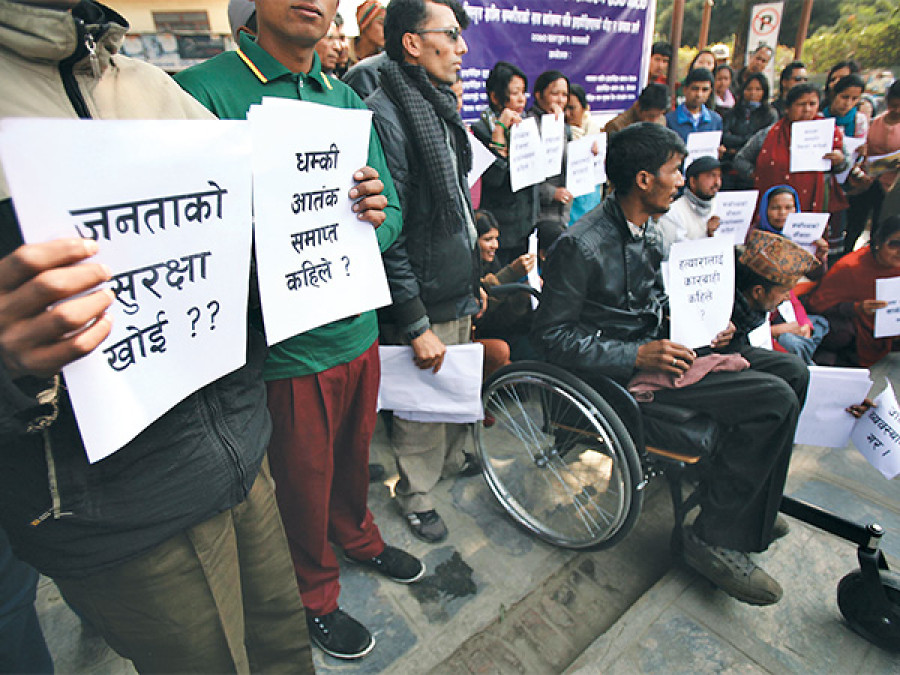Miscellaneous
Victims cry they were excluded
Political parties on Sunday proposed the names for chairpersons of the proposed Truth and Reconciliation Commission and Commission on Enforced Disappearances.
Development Bureau
Former speaker and senior advocate, Daman Nath Dhungana, has been proposed for TRC and former appellate court judge Lokendra Mallik the head of the CED. The names will be forwarded to the Recommendation Committee, responsible for recommending officials at the commissions. The committee has been preparing a roster of candidates for both the commissions.
If things go as plan, the Committee will publicise the roster, and call for public opinions and complaints regarding the candidates. The member of the public will be given 10 days to file a complaint, if any, against the candidates. The committee says the public vetting of the candidates makes the process participatory.
However, the victims have complained that they have been excluded from the entire process despite Supreme Court’s verdict.
“We want to help the state as we want closure to the conflict era cases as early as possible,” says Suman Adhikari, chairperson of the Conflict Victims Orphans Society. “But we have been excluded from the entire process.”
Adhikari was taken in as an expert panel assigned to draft the TRC bill from the victims’ side. He, however, claimed that the government did not incorporate the suggestions made by the panel.
Victims and rights defenders have objected the provision of amnesty in the TRC Act. They argue that the commission should not given discretionary authority to grant amnesty to rights violators of serious cases.
“Politics has taken over the issue,” says Gyanendra Aran, secretary of the Conflict Victims National Society. “Initially, victims were also divided. But after they were ignored from the process, everyone came together to fight for the cause.”
Aran has said that the government should wait for the verdict of the Supreme Court. Three writ petitions are pending at the apex court against the TRC Act as well as Recommendation Committee and its working procedure.
The parties agreed to forward the process only after the opposition, UCPN (Maoist), demanded that the remaining tasks of the peace process be completed first to discuss on the disputed issues of constitution writing.




 7.15°C Kathmandu
7.15°C Kathmandu







%20(1).jpg&w=300&height=200)

